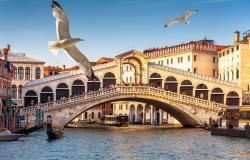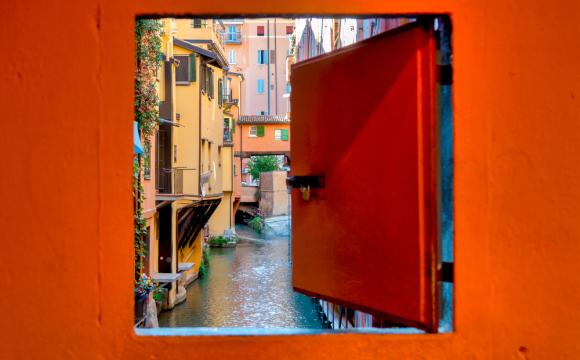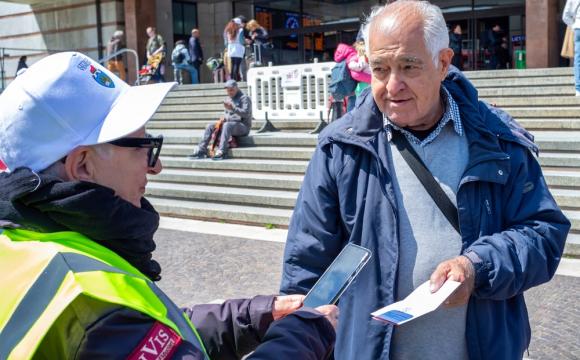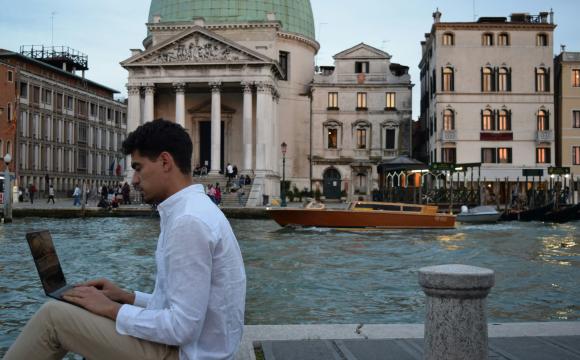Words by Pat Eggleton
Do you have your latest travel insurance policy to hand? Or maybe you still have an old one? Take a look at it and see if you can find the emergency number that you or your relatives should call if you are taken ill or have an accident on holiday. It is probably in quite large print near the end of the second page. If you are lucky, you will never have to call this number but have you ever wondered what happens if you do?
When you call that number, someone answers in the name of your travel insurance company so it is logical to assume that you are talking to one of their employees. But you are not. The person you are speaking to works for an international medical assistance company employed by your insurers to act on their behalf. These assistance companies have contracts with hundreds of travel insurers and the clients of each one call the medical assistance company on a different number. The “assistance coordinator” answers in the name of your particular travel insurance company because a little light on her phone indicates which company name she should greet you with:
“Good morning, Anycompany Direct. Jane speaking. How can I help?”
 Why does the insurance company use another type of company altogether to handle its medical cases abroad? Because a travel insurance company employs legal experts and underwriters, whilst an international medical assistance company employs doctors, linguists and probably its own travel agent. Are you wondering why a doctor in the UK needs to be consulted about your health claim abroad? Read on.
Why does the insurance company use another type of company altogether to handle its medical cases abroad? Because a travel insurance company employs legal experts and underwriters, whilst an international medical assistance company employs doctors, linguists and probably its own travel agent. Are you wondering why a doctor in the UK needs to be consulted about your health claim abroad? Read on.
If you are hospitalised or receive emergency outpatient treatment abroad the hospital treating you will usually ask for your travel insurance documents after you have received initial medical treatment. It is at this point that you or a relative should call the emergency number so that the medical assistance company and insurance company know that there is going to be a claim. You may be asked to fax a copy of the policy to the medical assistance company as this is the quickest way for them to verify that the policy exists. The medical assistance company works 24/7 but the insurance company does not, so the assistance coordinator cannot call the insurance company to check that you are covered if it is 2 am in the UK.
 In the case of an accident, the procedure is usually straightforward: once the assistance company has verified the insurance policy and one of their doctors has, with your permission, seen a medical report, the coordinator can fax a guarantee of payment to the treating hospital or doctor. The assistance company’s role does not end there, however, for you may not be fit to fly home on your booked date and your condition may require special travel arrangements, such as extra seats on the plane to accommodate a broken leg, airport wheelchair assistance or a stretcher repatriation.You may need a medical or non-medical escort.
In the case of an accident, the procedure is usually straightforward: once the assistance company has verified the insurance policy and one of their doctors has, with your permission, seen a medical report, the coordinator can fax a guarantee of payment to the treating hospital or doctor. The assistance company’s role does not end there, however, for you may not be fit to fly home on your booked date and your condition may require special travel arrangements, such as extra seats on the plane to accommodate a broken leg, airport wheelchair assistance or a stretcher repatriation.You may need a medical or non-medical escort.
An air ambulance is only used in the most serious cases. How and when you will be brought home is a decision which the medical assistance company’s doctor will make in consultation with the treating doctor abroad. This is where the company’s linguists come in, as they act as interpreters for the doctors. All arrangements for your repatriation will be made by the assistance company, which keeps the insurance company informed at every stage.
A special note here for the skiers: it sounds obvious, but do make sure you have a policy with ski cover and do not risk skiing off-piste or in dangerous conditions, for this could result in a no cover situation.
 If you are taken ill abroad, you or your nearest relative will probably be asked to sign a “medical consent” form which the medical assistance company will fax to the treating hospital. This gives the medical assistance company’s doctor permission to check your past medical history. Why is this necessary? Well, if you had a heart attack three weeks ago, were ordered to rest but were living it up on Ibiza when your heart conked out again it would be a bit much to expect the insurance company to pay thousands of pounds for your treatment and repatriation, wouldn’t it? There are, also, people who quite deliberately set out to defraud their travel insurance company. Perhaps Mr Swindler is waiting for a medical procedure in the UK when he suddenly gets the bright idea that, if he pretends that the problem only began in the middle of his holiday in Florida, he could get quicker and better treatment there. Forget it, Mr Swindler, for the medical assistance company has rumbled you and quite soon your travel insurance company will send someone out to the USA to have a few words with you!
If you are taken ill abroad, you or your nearest relative will probably be asked to sign a “medical consent” form which the medical assistance company will fax to the treating hospital. This gives the medical assistance company’s doctor permission to check your past medical history. Why is this necessary? Well, if you had a heart attack three weeks ago, were ordered to rest but were living it up on Ibiza when your heart conked out again it would be a bit much to expect the insurance company to pay thousands of pounds for your treatment and repatriation, wouldn’t it? There are, also, people who quite deliberately set out to defraud their travel insurance company. Perhaps Mr Swindler is waiting for a medical procedure in the UK when he suddenly gets the bright idea that, if he pretends that the problem only began in the middle of his holiday in Florida, he could get quicker and better treatment there. Forget it, Mr Swindler, for the medical assistance company has rumbled you and quite soon your travel insurance company will send someone out to the USA to have a few words with you!
 In the tragic event of a death abroad, the medical assistance company initially takes the case. Once insurance is verified and it is established that the death did not occur in suspicious circumstances and was not due to a pre-existing medical condition or carelessness [such as drunkenness or skiing in dangerous conditions] the medical assistance company passes the case to a company of international undertakers who, via their own interpreters, arrange for the repatriation of the body.
In the tragic event of a death abroad, the medical assistance company initially takes the case. Once insurance is verified and it is established that the death did not occur in suspicious circumstances and was not due to a pre-existing medical condition or carelessness [such as drunkenness or skiing in dangerous conditions] the medical assistance company passes the case to a company of international undertakers who, via their own interpreters, arrange for the repatriation of the body.
By now you may be wondering about “pre-existing medical conditions” and it is important to say here that not all such conditions rule out insurance cover. The degree of cover varies from company to company so you should always ask about this and read the policy’s small print before purchasing it. Some companies will cover well-controlled pre-existing conditions such as asthma and epilepsy whilst others will not. With regard to this, read the small print carefully if you are considering taking out an expatriate or annual policy.
 You may also be thinking, “But I’m an EU citizen so surely my NHS card will cover me within the EU?” The answer to that is yes and no. Emergency treatment in hospital is covered by the NHS card but in some EU countries ambulance transfer does not come under the control of hospital administration offices and has to be paid for. There may be charges for certain tests, too. For skiers, piste recovery is always charged separately from hospital treatment.
You may also be thinking, “But I’m an EU citizen so surely my NHS card will cover me within the EU?” The answer to that is yes and no. Emergency treatment in hospital is covered by the NHS card but in some EU countries ambulance transfer does not come under the control of hospital administration offices and has to be paid for. There may be charges for certain tests, too. For skiers, piste recovery is always charged separately from hospital treatment.
The UK has reciprocal medical agreements with Australia and New Zealand but again, not everything is covered.
Remember, too, that the medical assistance company exists to assist you. Its doctors want to get you home as soon as possible, but only when it is safe to move you. And your travel insurance cover ends once you are back on the soil of your homeland.
Here are our travel insurance tips:
1. You would be surprised if you knew how many people do not bother to take out travel insurance at all, particularly for short trips. So, at the risk of sounding like your fussiest auntie, tip number 1 is … get a policy!
2. Do not assume that, within the EU, everything is covered by your status as an EU citizen. You do need travel insurance.
3. If possible, leave a copy of your travel insurance policy with someone at home, especially if you will be travelling off the beaten track. That person may be able to fax a copy to the assistance company more quickly than you can.
4. If you have had a recent operation or illness or suffer from a chronic condition, check the small print of your policy carefully. Ask your family doctor for a “Fit to fly” certificate. This could speed up the paperwork if you do need treatment abroad.
5. Check what your policy says about outpatient treatment abroad. Some policies expect you to “pay and claim”, ie., to pay for treatment on the spot and claim the money back when you get home.
6. If a family member is taken seriously ill or has a serious accident abroad, or if the patient is a child, most insurance companies will pay for ONE relative to stay on or fly out to be with the patient. They will usually cover accommodation costs but not the costs of meals or phone calls while that relative is abroad. You need to be aware of this.
7. If you have a “free“ travel insurance that has come with a credit card, the chances are that it will cover NO pre-existing conditions. Read the small print carefully.
8. Read all the small print very carefully if you are taking out an expatriate policy.
9. If you are skiing or taking an adventure holiday, make sure you have the right kind of cover and do not take unnecessary risks.
10. Got the policy, read it, made a copy? Now put it with your passport, relax and have a good time!
This article is based on experience of working for a UK medical assistance company. Medical assistance companies in other countries operate in similar ways.













